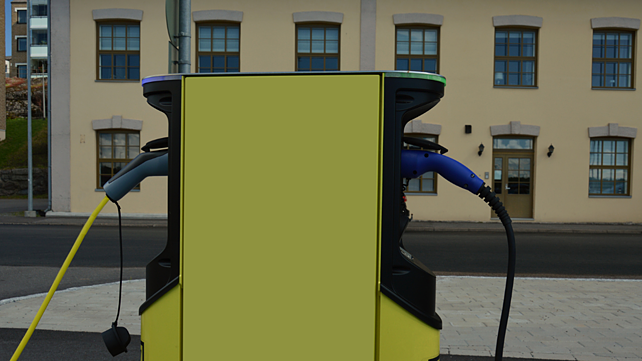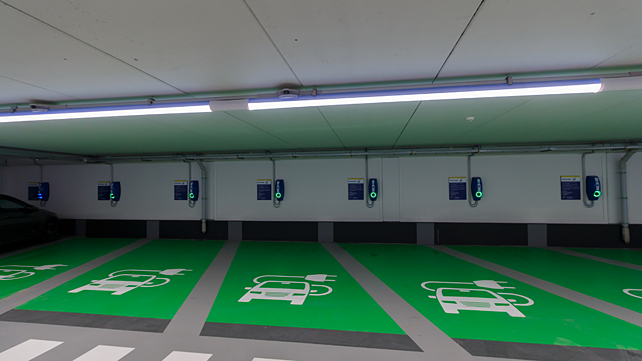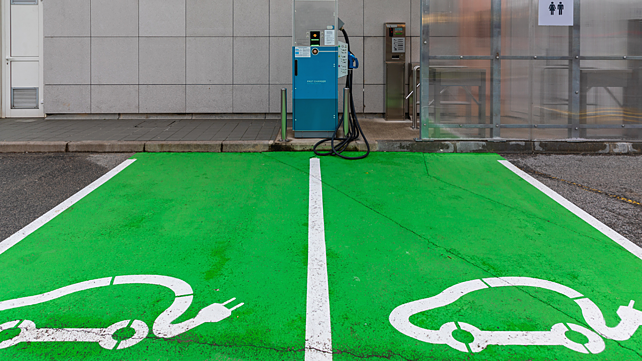
The massive policy push to electric vehicles (EVs) has prompted India to gear up for large-scale adoption of EVs, with state-wise targets to electrify private as well as public vehicles. Though a report by the Confederation of Indian Industry (CII) estimates the penetration of EVs in the private car segment to reach almost 10% by 2030, today it stands at a dismal 1%.
One of the primary reasons for this is the absence of adequate charging infrastructure. For an apartment complex especially, setting up a charging point for residents that own EVs is extremely cumbersome, time-consuming, and expensive.
What it takes to install charging points at residential complexes
While the price of one charging unit is affordable (INR 65,000-100,000), installing a common charging point at an apartment building is a costly affair, as it involves the additional costs of high-end/heavy-duty wires to be drawn from the charging station to the parking lots of EV owners. Also, the intricate electrical wiring and circuits of residential complexes mandate stringent safety norms, stronger electric infrastructure provisions, and higher maintenance and other investment requirements.
All these issues make it challenging to install charging points here, which is why most Residents Welfare Associations (RWAs) are reluctant to set up charging stations. On the other hand, EV owners, who are tenants in the apartment complex, may also be hesitant to invest in a charging station, as it will become a dead investment for them when they relocate. With most metro cities having a large floating population who live on rent, this can cause considerable hindrance.

That apart, not many people own EVs at present. Due to this, public awareness about charging stations (related to quality standards, or safety measures while designing and installation) is poor. As such, RWAs are generally sceptical about the risks of setting up a charging infrastructure in the basement (usually the parking space in complexes).
What can be done?
Currently, apartment complexes provide EV charging points in the uncovered visitors’ parking area, citing residents’ safety concerns around a basement charging station. This too is a good start. If required, the complex administration can open these charging points for non-residents to recover the investment cost. They can do this through the various apps that provide information on the availability of charging points and level of charger, and also facilitate slot booking for charging for a fixed time span.
The government has been talking of amending the building bye-laws to allot 20% of parking space for EV charging facility at all residential buildings. This, however, can be financially unviable for the developer. Most residents of apartment complexes own petrol or diesel vehicles, and therefore, would not be willing to spend on charging stations.
To address this, residential apartments can, initially, dedicate a smaller space (about 5% of parking space) for charging EVs, till 2030. Simultaneously, efforts can be made to push for amending the bye-laws to this effect. Apartment administration can allot all of this space collectively at one place, saving on infrastructure cost and bringing a sense of safety to residents. If there are no EVs, this space can be allotted for petrol/diesel vehicles.
In such cases, residents owning these vehicles will have to give consent for exchanging their parking lots with EV owners, as and when required. These parking lots should ideally be mid-car sized, for ease of exchange, and to ensure they are always utilised at full capacity.

To reduce the financial burden on RWAs, the charging operations can be outsourced to private providers, who offer chargers on ‘energy as a service’ basis — which means one pays for the energy one uses (in this case the electricity used for charging EVs). A single charger with multiple pins can be installed and a monthly payment (calculated on the basis of units used) can be made to the company by the user. This will allow the tenants to own EVs without worrying about the infrastructure investment cost.
While most EV car companies provide technical and installation support for EV chargers, residents are often in doubt about the quality of work and material used. Safety certificates by authorised organisations (such as electricity utilities), and standardisation of installation processes can resolve this issue.
In conclusion
EVs are the pivot of sustainable urban mobility. To encourage and expedite the uptake of EVs, we need to create a favourable environment. Easing EV charging through installation of charging stations in residential complexes is a vital step in this direction. This, however, does not rule out the need for public charging stations — that would become critical in the light of expanding EV fleet.
About the Author: Trupti Deshpande works in the area of urban transport and planning at the Center for Study of Science, Technology and Policy (CSTEP), a research-based think tank.